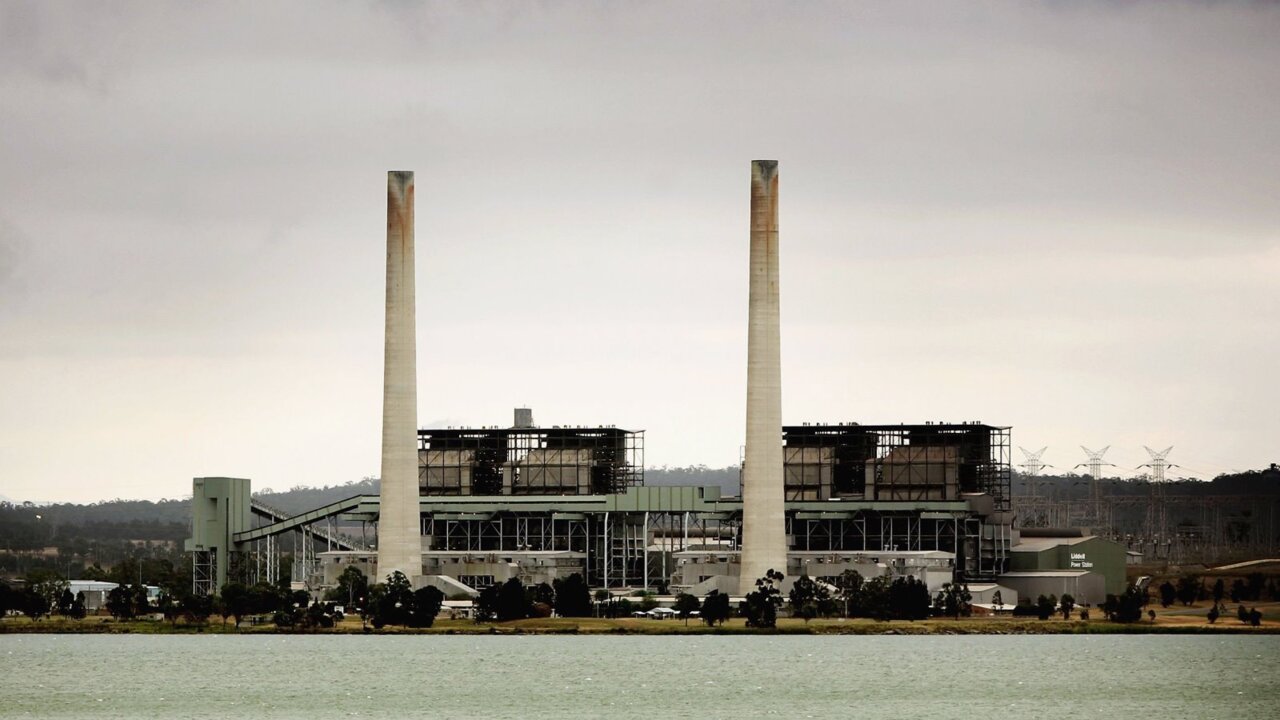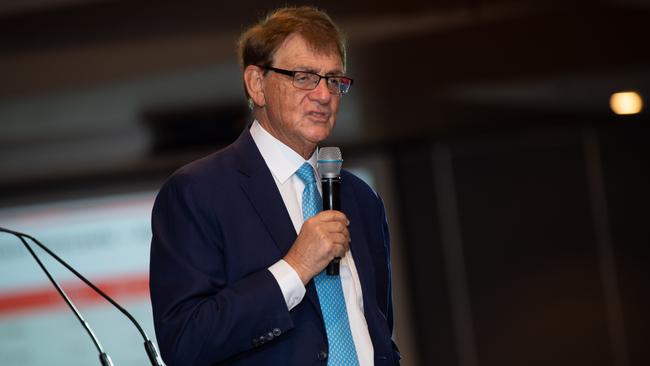Westpac chief economist Bill Evans calls RBA changes ‘absolutely frightening’, says renewable energy costs will be massive
A leading economist warns energy transition will come at a massive cost – often for no more power – while railing against the RBA reforms.

SA News
Don't miss out on the headlines from SA News. Followed categories will be added to My News.
Australia’s renewable energy transition will need 10,000km of transmission lines causing disruption across the country and massive investment, often for no more power, says renowned Westpac chief economist Bill Evans.
Speaking at an Adelaide Oval business breakfast on Thursday morning, Mr Evans said the potential price impact of growing renewables to 82 per cent of electricity generation by 2030 had not been considered sufficiently.
The leading economist also warned “scary” reform plans for Reserve Bank would result in the “frightening” situation of limelight-hogging academics dominating experts in setting interest rates.
Responding to a question from former Liberal Senator and Sky News host Cory Bernardi, Mr Evans listed energy and global tension as the big, long-term stresses on inflation.
“(In) the whole energy transition there’s going to be a massive requirement on investment and, in some cases, for no additional energy just a different type of energy. What does that mean for inflation? People aren’t really thinking about the potential inflationary impacts of that and the major global tension,” he said.
“ … But the problem with wind and solar and all renewables is that if we’re going to reach those 2030 targets, 82 per cent of our energy will have to be renewables by 2030 and we’ll need 10,000km of transmission lines.
“So a lot of the people, the environmentalists, are going: ‘Well, hang on. I don’t want those transmission lines in my backyard. I don’t want them on my beautiful countryside.”

Mr Evans said one wind farm investor, who he did not identify, had told him building a 200km transmission line to the grid would cost $700m above ground but he had been told to build a below-ground line at a cost of about $7bn.
He said this might mean South Australia’s proposed $596m hydrogen power plant would ultimately be a successful move.
Mr Evans also warned the proposed Reserve Bank board revamp, with one panel focused exclusively on interest rate decisions comprising two bank insiders and seven “outsiders”, was pushing in “a direction that to me is quite, quite scary”.
“We could have a model where we have seven academics sitting around the table, telling our central bank what to do. It’s frightening. It’s absolutely frightening,” he said.
“So, in a way, we’ve overreacted against the Reserve Bank for some of these other problems that I talked about, with regards to inflation and the sharp rise in interest rates that we’ve have to do. And we get we might end up with a model that is quite, quite destabilising.”





